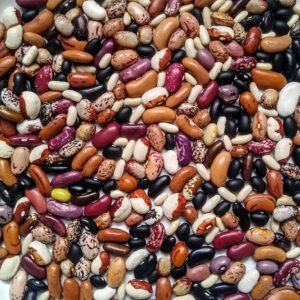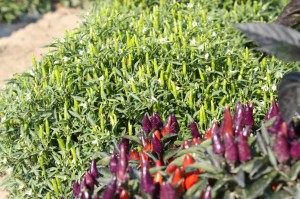
 OSA’s Role in Building Organic Seed Systems According to a 2010 nationwide survey organic farmers are faced with a seed market that neither possesses sufficient available quantities of certified organic seed to meet demand nor the specific varieties of organic seed that they desire. As a result, many organic farmers have had to compensate by using conventionally bred seed varieties selected for use in high-input chemical farming systems in lieu of those specifically adapted to organic farming systems.
OSA’s Role in Building Organic Seed Systems According to a 2010 nationwide survey organic farmers are faced with a seed market that neither possesses sufficient available quantities of certified organic seed to meet demand nor the specific varieties of organic seed that they desire. As a result, many organic farmers have had to compensate by using conventionally bred seed varieties selected for use in high-input chemical farming systems in lieu of those specifically adapted to organic farming systems.
Time for USDA to Support Public Plant Breeding The National Organic Coalition recently released an analysis of the state of classical plant breeding and past efforts to improve funding for this fundamental sector of agricultural research. The report’s summary states that despite a clear mandate from Congress and significant public input, the USDA National Institute for Food and Agriculture (NIFA), and previously the Cooperative State Research and Education Service (CSREES), has failed to provide real funding for development of public cultivars and animal breeds.
OSA’s Comments on New GE Corn Trait Because seed is the first and most vital resource in the production chain, the integrity of seed is paramount to the success of organic and non-GE farmers. Introducing yet another GE corn trait that is rejected by organic and non-GE farmers and the markets they serve – and, to date, has proven uncontainable – places even more undue burden on the organic and non-GE community.
OSA IN THE NEWS
Seestock.com (July 20, 2011)
Richmond, CA: Jared Zystro presents “Seed Saving 101” in conjunction with the Richmond Grows Seed Lending Library on September 12, 2011.
Petaluma, CA: Jared Zystro presents “Seed Saving 101” at the Heirloom Expo on September 13 – 15, 2011.
Berkeley, CA: Jared Zystro presents “Seed Saving 201” at the Ecology Center on Tuesday October 4, 2011.
Port Townsend, WA: OSA’s Organic Seed Growers Conference on January 19 – 21, 2012
